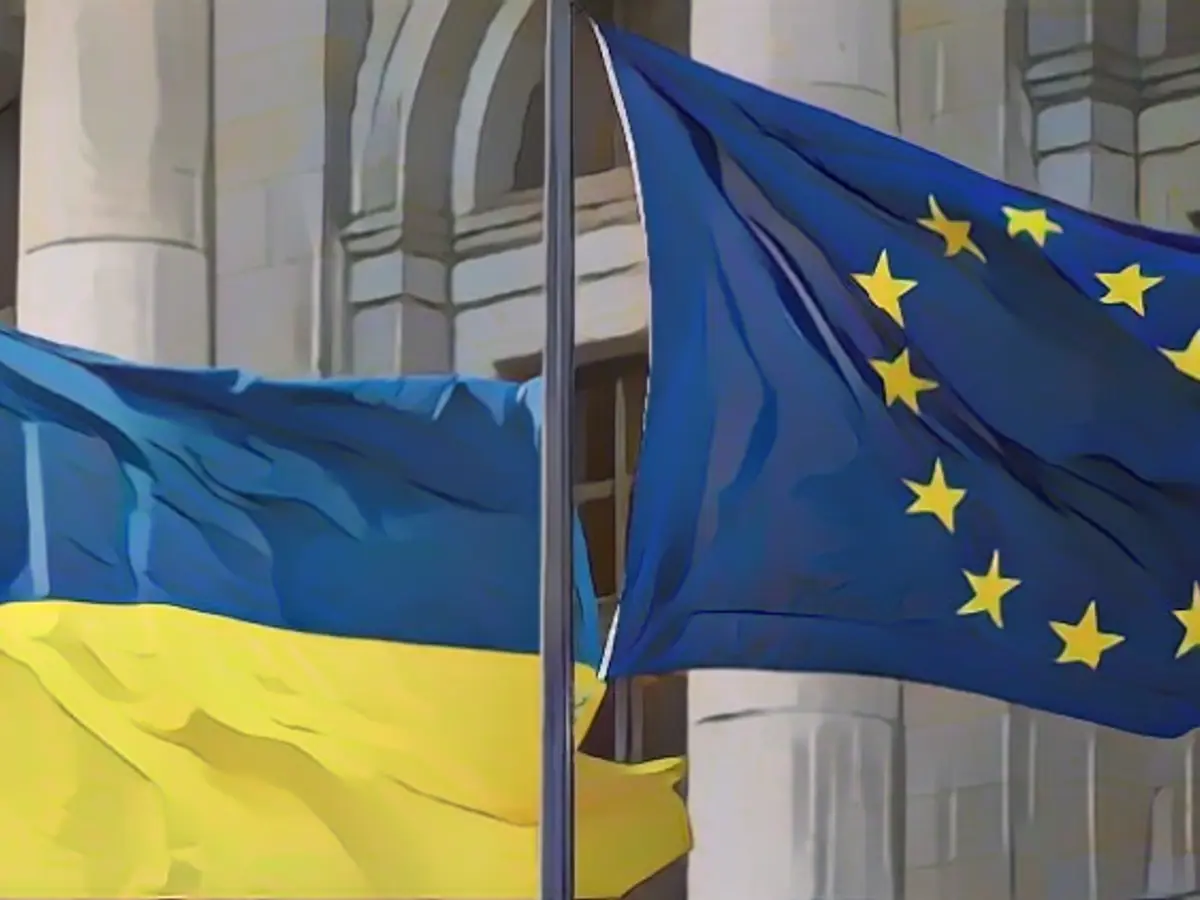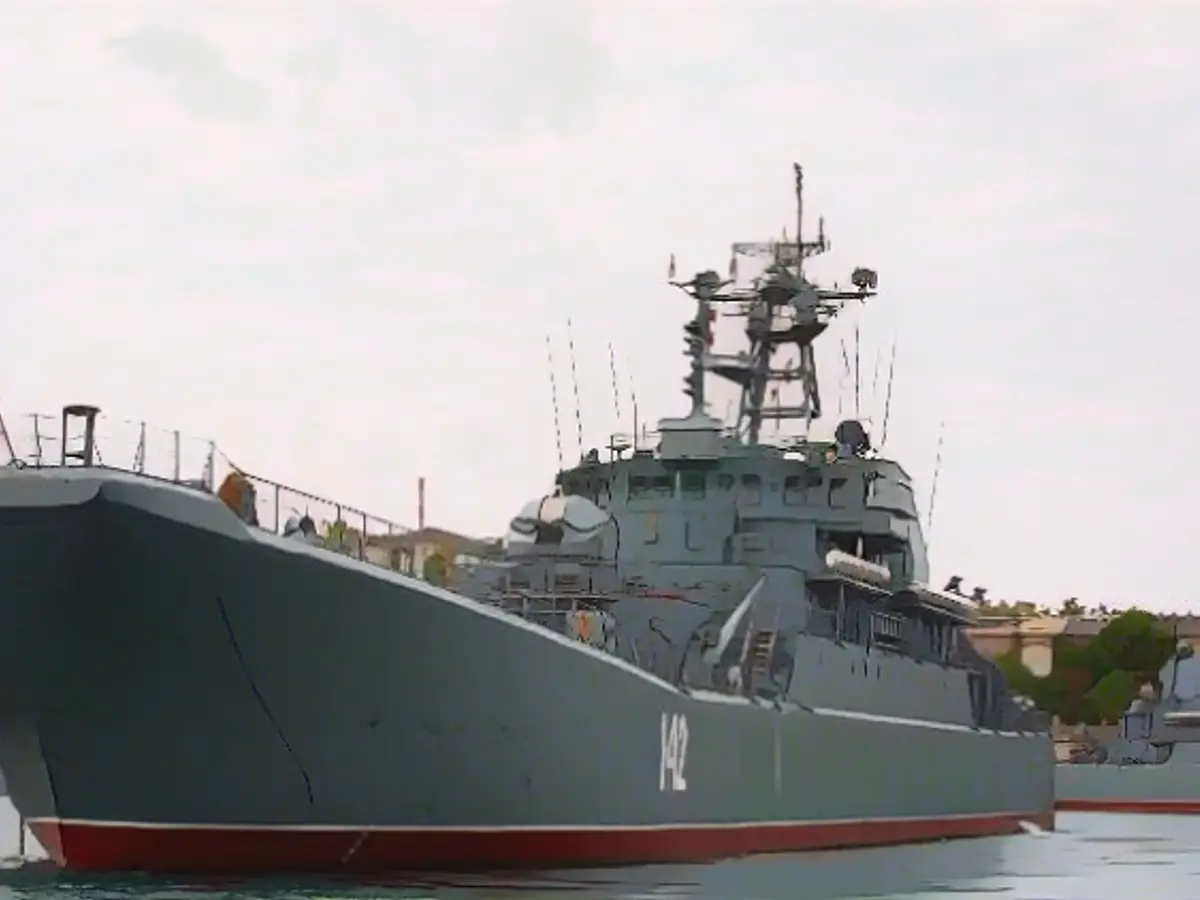Headlines: EU Greenlights Ukraine, Moldova Membership Talks Amidst Hungarian Resistance
Posing a surprise move after initial opposition from Hungarian Prime Minister Viktor Orban, the European Union has officially initiated membership talks with Ukraine and Moldova. EU Council President Charles Michel announced the decision following the EU summit, stating, "The European Council has decided to open accession negotiations with Ukraine and Moldova."
Despite the unexpected shift, Hungary remained steadfast in its stance against the conditions having been met, with Prime Minister Orban asserting, "There's no reason to discuss anything because the conditions have not been met."
Granting Georgia candidate status, Michel further expressed the EU's intentions to initiate negotiations with Bosnia and Herzegovina "as soon as the necessary level of compliance with accession criteria is reached." The EU Council President concluded by viewing this as an essential beacon of hope for the people and the continent.
Insights:
The EU's decision, backed by 26 member states, represented a crucial step towards integrating Ukraine and Moldova within European Union ranks. Ukraine's President Volodymyr Zelenskyy praised the decision, calling it "a victory for Ukraine, a victory for all of Europe, a victory that motivates, inspires, and strengthens." Moldovan President Maia Sandu echoed the sentiment, reaffirming her country's dedication to EU membership.
Hungary's opposition, though strong, was eventually overruled, with Hungarian Prime Minister Orban's close ties with Russian President Vladimir Putin fueling speculation. The announcement triggered a wave of optimism for both countries, igniting hope in the process of EU enlargement.
The Czech Republic has since developed a roadmap to bolster Ukraine and Moldova's integration into the EU, focusing on sectors such as energy, agriculture, and telecommunications. This initiative intends to strengthen economic ties and support the implementation of reforms in both nations.
However, the path ahead is expected to be a lengthy and challenging one. Both Ukraine and Moldova must adapt to EU standards and criteria, with potential hurdles surfacing from procedural decisions and Hungary's ongoing opposition. The EU Council Presidency, currently held by Poland, has prepared a letter outlining conditions for the opening of the first batch of negotiations on Ukraine's membership, which focuses on the rule of law. This may further delay the process due to Hungary's insistence on additional requirements.
Culled from
Enrichment Data: - Decision and Support: - Originating from the European Council's December 14th meeting in 2024, the decision garnered support from 26 of the EU's 27 member states, with Hungary's Viktor Orban dissenting. - Critically, the EU Council emphasized that this decision served as "a clear signal of hope" for the peoples and continent as a whole.
- Ukrainian and Moldovan Reactions:
- In reaction to the EU's decision, Ukrainian President Volodymyr Zelensky welcomed the move while Moldovan President Maia Sandu echoed her country's determination to join the EU.
- Hungarian Opposition:
- Despite the decision, Hungarian Prime Minister Viktor Orban continued his crusade against EU membership for Ukraine and Moldova, citing insufficient conditions as justification for his country's abstention from the vote.
- Implications for EU Enlargement:
- The EU's decision signaled revitalized enthusiasm for EU enlargement, as countries such as Georgia and Bosnia-Herzegovina have also advanced in their accession processes.
- The Czech Republic has established a framework to streamline Ukraine and Moldova's integration into the EU, concentrating on energy, agriculture, and telecommunications.
- Challenges Ahead:
- The task of adapting to EU criteria and norms for Ukraine and Moldova is likely to be complex and time-consuming, with potential speed bumps arising from procedural obstacles and Hungarian opposition.
- The EU Council Presidency expects to proceed with the first cluster of negotiations on Ukraine's membership, albeit with conditions, possibly risking additional delays due to Hungary's insistence on further requirements.








